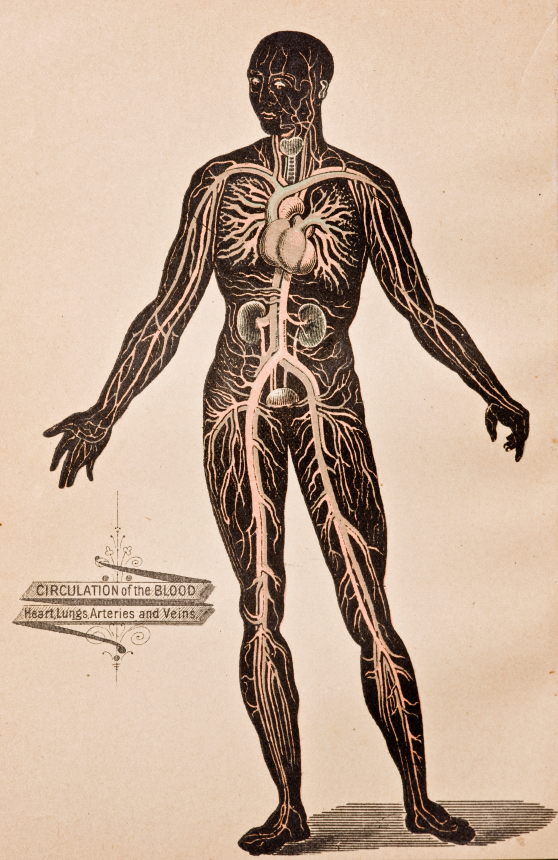Boston, MA – Researchers from Brigham and Women’s Hospital (BWH) have found that participants in the landmark JUPITER trial who were taking a daily statin, cut the risk of blood clots in the veins, or ven ous thromboembolism (VTE), overall by more than 40 percent compared to those who took a placebo. Previous JUPITER findings showed that statin therapy lowered cholesterol as well as a biomarker for inflammation, high sensitivity C-reactive protein (hsCRP). The new findings show that a daily regimen of rosuvastatin also significantly reduces the risk of dangerous, life threatening blood clots in the veins. The findings were reported at the American College of Cardiology’s 58th Annual Scientific Session, and will appear in the online issue of the New England Journal of Medicine.
ous thromboembolism (VTE), overall by more than 40 percent compared to those who took a placebo. Previous JUPITER findings showed that statin therapy lowered cholesterol as well as a biomarker for inflammation, high sensitivity C-reactive protein (hsCRP). The new findings show that a daily regimen of rosuvastatin also significantly reduces the risk of dangerous, life threatening blood clots in the veins. The findings were reported at the American College of Cardiology’s 58th Annual Scientific Session, and will appear in the online issue of the New England Journal of Medicine.
“VTE is a serious sometimes fatal event that is costly and inconvenient to treat,” said Robert J. Glynn, PhD, ScD, a biostatistician at Brigham and Women’s Hospital. “When patients and their doctors discuss initiation of statin therapy, prevention of VTE is an important additional consideration beyond proven benefits in the prevention of heart attack and stroke.”
VTE is a very common illness with risk of development increasing with age. Other risk factors include obesity, use of hormone replacement therapy, certain genetic defects and long periods of inactivity and injury to the blood vessels. Deep vein thrombosis, which can cause pain in the legs, is an early form of VTE, while pulmonary embolism is a frequently fatal, advanced form of the condition that involves a blood clot traveling dangerously to the lungs. Nearly 100,000 people die each year as a result of DVT with nearly 600,000 cases diagnosed each year. It has been called America’s number one preventable illness.
JUPITER is the first randomized trial to prospectively examine whether statin therapy can prevent VTE. The trial was made up of 17,802 apparently healthy men and women with low-density lipoprotein (LDL) cholesterol levels of less than 130 mg/dL and high-sensitivity C-reactive protein (hsCRP) levels of 2.0 mg/L, or higher, randomly assigning them to rosuvastatin, 20 mg/day, or placebo. The average age of the study participants was 66 years, and 38 percent were obese.
During follow-up, 34 participants in the rosuvastatin group and 60 in the placebo group developed symptomatic VTE, a 43 percent reduction. Similar reductions in risk were found among people who had cancer or had recently been hospitalized, undergone surgery, or suffered a trauma (so-called provoked VTE), as well as among those who did not have any of these triggers for VTE (so-called unprovoked events). Risk reductions were seen for both deep vein thrombosis and for pulmonary embolism.
“Our findings require confirmation, but they have the potential to broaden our perspective on the treatment targets for statin therapy,” Glynn said. “Including consideration of VTE in addition to conditions caused by arterial thrombosis, such as heart attack and stroke, increases the estimated benefits associated with statin use.”
“The clinical bottom line here is simple” said Paul Ridker, MD, also of the Brigham and Women’s Hospital and Trial Chairman of the JUPITER study. “In addition to reducing risks of heart attack and stroke, we now have hard evidence that statin therapy reduces life-threatening blood clots in the veins as well. In contrast to drugs like warfarin and heparin, we got this benefit with no bleeding hazard at all, so the new data are an exciting advance for our patients”.
JUPITER was conducted by investigators in 26 countries and was overseen by an academic statistician and an independent Data and Safety Monitoring Board. The study was funded by AstraZeneca, US, which had no access to unblinded trial data and played no role in the analysis or interpretation of the study data, nor in manuscript preparation. Dr. Ridker is listed as a co-inventor on patents held by BWH that relate to the use of inflammatory biomarkers in cardiovascular disease that have been licensed to Seimens and AstraZeneca.